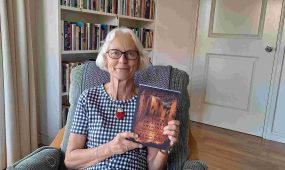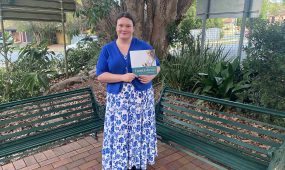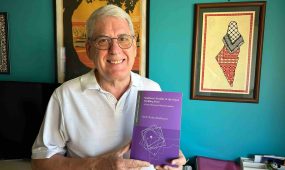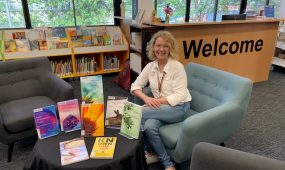Climate for Change
Books & Guides
“I wholeheartedly recommend the use of ABM’s Climate for Change to anglican focus readers. It utilises excellent scholarship and resources to help us to gain a balanced opinion on the effects of climate change, the human role in the change, and ways we can act to reverse damage to the climate,” says The Rev’d Kaye Pitman OAM
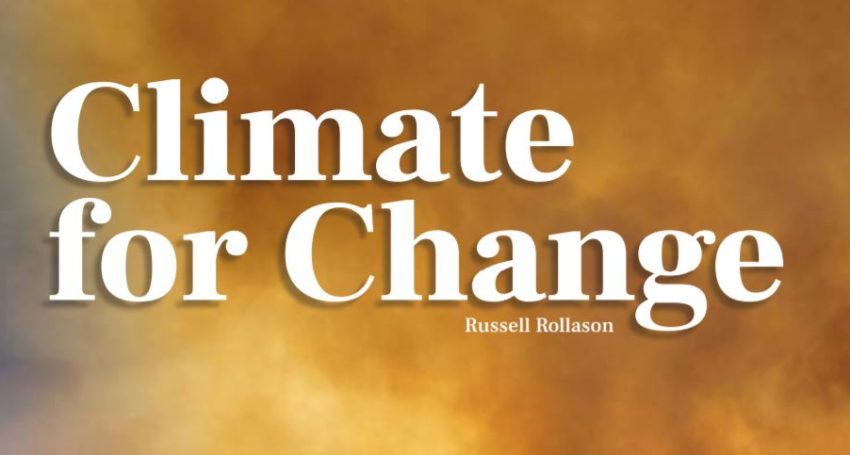
The Anglican Board of Mission has produced a timely, well-written and appropriate series of five studies with its latest publication Climate for Change. Many parishes are following the ‘Season of Creation’ during the month of September until St Francis of Assisi’s Feat Day on 4 October, and this series is perfect as an accompanying activity (although it is relevant for any time). The author Russell Rollason has been a faithful member of the Anglican Church from the YAF (Young Anglican Fellowship) days in Brisbane and has a lifetime of experience in international aid and development. When Russell writes of the critical role of water for all of creation, it is based on his personal experience in many countries. This gives the studies credibility and authenticity. In addition, the studies are founded on current research, global movements and reliable information.
With each study there are interesting and stimulating suggestions for further activity via podcasts, videos or relevant written material. What is particularly admirable about Russell’s approach is that there is always hope and encouragement for followers – he emphasises that there are opportunities for all to bring about change. Supporting this is a constant thread throughout the studies connecting with St Francis of Assisi: “The voice of Francis from 800 years ago still calls out to us” (p.9).
I found that the studies contained an absolute mine of information that never reaches much of the mainstream media. From the very first study, ‘The Coronavirus Pandemic a ‘dress rehearsal’ for climate change’, it was apparent that propaganda, sensationalism and political pressures overshadow factual information. My ignorance of global affairs was obvious as the current management of COVID-19 was reviewed, and then placed against climate change crises of the future. The plethora of information contained from credible global reports from the United Nations and The Rockefeller Foundation, along with quotes from a conservationist, the Pope, and an article from The Lancet medical journal, just to name a few, was edifying (p.13). The “dress rehearsal” quote was from a former Liberal Party leader, John Hewson. Following the points made with these illuminating excerpts, there is a short section ‘Everything is Connected’. The significance of the expanding human population, the demolishment of forests and wild places, with the viruses of some species of animals and plants being “shaken loose” from their hosts and finding other hosts like us, was something I had not fully synthesised until I read the study (p.14). I found the study’s insights more acceptable than the political antagonism that has been shown towards China that eliminated any responsibility from those who created the environmental damage.
Hope is upheld throughout the presentation. In the introduction to this study, after a description of the many global disparities associated with COVID-19, are the words, “However, the pandemic has also presented the world with a unique opportunity to take stock and, with courage, set a new course for a better, fairer world” (p.11). Later in the study I learned for the first time of the WEF (World Economic Forum) and its answer, called ‘The Great Reset’. Its aim is to rebuild the global economy in a fairer, cleaner way…hoping to battle and beat racism (p.16).
Advertisement
Each of the five studies is packed with similar enlightening and stimulating material. Russell provides a succinct ‘big picture’ of today’s world, with a fairly gentle but compelling prod to do something more effectively to care for creation. In the final study he offers ‘Six bricks for building a climate for change’ (p.54) to help.
The studies are suitable for a youthful age group or for those of my vintage. An excellent introduction is provided to help prepare people for the studies, with nine easy-to-follow suggestions from ‘Step One: A suitable time’ to ‘Step Nine: Let us know how you went’. The language used is easy to understand and the directions are clear and explicit. For example, under ‘Step 5: Questions’, the leader is assured that the questions supplied are mere starting points: “There are no silly questions and there are no right answers” (p. 4). The goal is to gain understanding. Throughout the studies, alternative information and research links are provided for those who wish to pursue a subject more fully – described as “taking a dive”.
One particularly striking feature of the studies is the ever-present emphasis on hope. It would be easy to descend into despair and anger when faced with the outcomes of human selfishness and greed, but instead the studies offer encouragement and directions for ways to support change and improvements. From the first study ‘The Coronavirus Pandemic a ‘dress rehearsal’ for climate change’, there is that hope for the future.
The introduction of this study includes the words “…the pandemic has also presented the world with a unique opportunity to take stock and, with courage, set a new course for a better, fairer world” (p. 11). Examples of the resources used are reports from international committees and health organisations, videos from The Climate Council, a Bible Study by Joy Eva Bohol, and three texts from St Francis and Scripture. The concept of hope continues through the studies, with the last study exploring ‘Grounds for Hope’.
Advertisement
A major highlight of the publication is the simplicity and attractiveness of its presentation. From the simple directions for its use, to the way in which each study is presented, it is excellent. The title for each study is colourful and clear, with ‘Study Key Points’ in a coloured box underneath the title, accompanied by a very poignant and relevant quote. The studies are then presented in three or four short excerpts with attractive images, apt illustrations and quotes or clear tables, and effective use of headings.
With discussion topics provided, there are opportunities for students to discuss what actions can be taken in response to climate change (Study 2), rediscovering links with God’s creation (Study 3), changing behaviour (Study 4) and having grounds for hope (Study 5). Finally, for each study there is a list of suggested resources, and a page for reflection and prayer based on St Francis quotes and texts from Scripture. The suggested resources are often videos and pod casts, with written references that are not too lengthy. These are easier to handle as extracts taken from very lengthy reports and reviews given by important commissions, conservation foundations and government documents.
I wholeheartedly recommend the use of ABM’s Climate for Change to anglican focus readers. It utilises excellent scholarship and resources to help us to gain a balanced opinion on the effects of climate change, the human role in the change, and ways we can act to reverse damage to the climate. Most importantly, it is also sensitively cognisant of the wisdom contained in Scripture and the vision of saints such as St Francis, who said “I have done what is mine; may Christ teach you yours.”
Climate for Change may be downloaded from the Anglican Board of Mission website.

